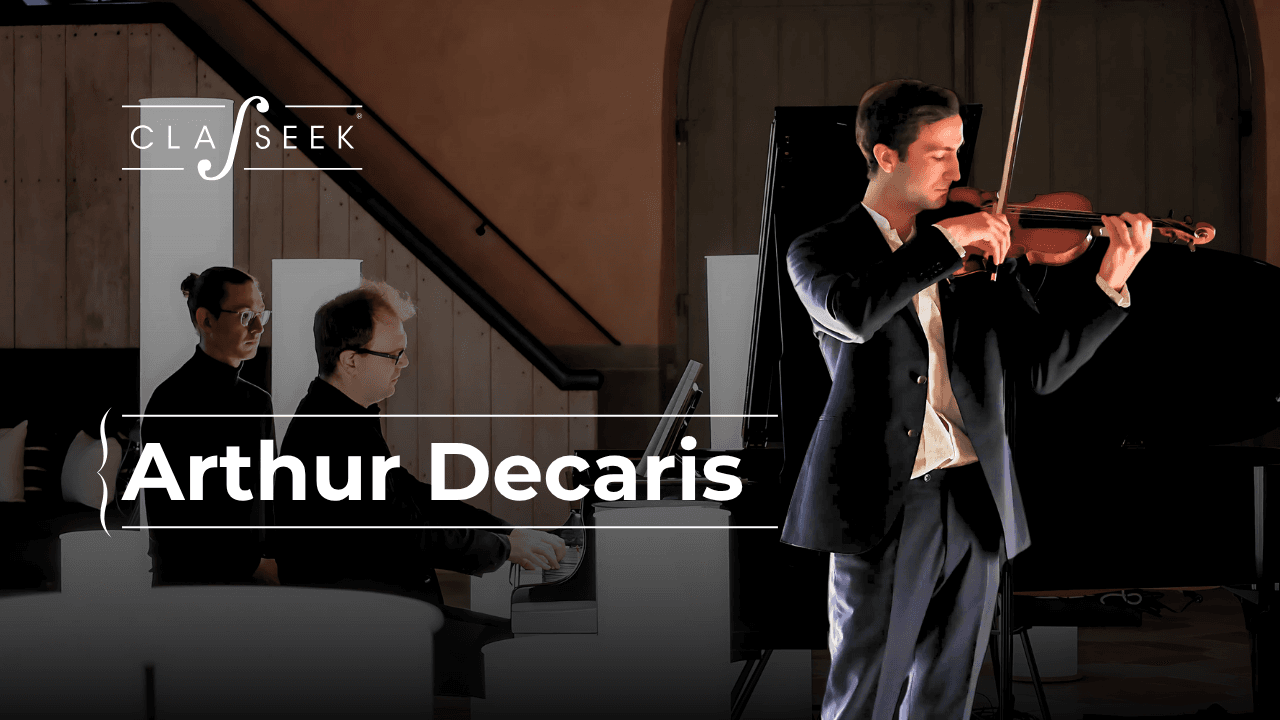
Programme
- F. Schubert - Fantaisie en do majeur pour violon et piano, D. 934
- L. van Beethoven - Sonate pour violon N°1 en ré majeur, Op. 12 N°1
Programme Info
Arthur Decaris (Violin), nominated by Renaud Capuçon
Orlando Bass (piano)
__
The Highest Form of Criticism is Time: Virtuosic Innovation in Schubert’s Fantasia and Beethoven’s Sonata No. 1
"Time is the only critic without ambition."
Steinbeck’s observation peals with truth when reflecting on both Schubert’s Fantasia in C major for violin and piano and Beethoven’s Sonata for Violin No. 1 in D major. The former was dismissed by a critic who left before the end of its first performance in 1828, while the latter was described as “strange… with what we might call perversities” in a 1798 Allgemeine musikalische Zeitung review. These reactions reveal that it is not the first critic but the last critic — time — that ultimately determines the true value of art, as they are now lauded for their intriguing innovation.
The last of his compositions for violin and piano, Schubert’s Fantasia in C major was written to showcase violinist Josef Slavík’s technical virtuosity and is equally demanding for the pianist. Described as “the most difficult music ever written for the piano” by pianist Nikolai Lugansky, it begins with shimmering hemidemisemiquavers on the instrument before the violin breaks the mist with a longing melody. The contrast between the interminable sung phrase of the violin and the bubbling piano exposes both instruments with shining clarity.
While this fantasia can be divided into thematic sections, it is its unusual structure of contrasting, loosely-linked parts that propel us into the near-formless virtuosic fantasy that disturbed critics. The second section, a Hungarian-style Allegretto with pronounced accents, is followed by an Andantino that sings out the theme of Schubert’s Sei mir gegrüsst, before concluding with a swaggering Allegro vivace march.
The colourful modulations that we recognise as unmistakably Schubertian mark this work, just as Beethoven’s non-standard modulations to ‘distant’ keys mark his Sonata for Violin No. 1 in D major. Dedicated to Antonio Salieri, this sonata challenges Classical-era conventions with its unexpected harmonic shifts criticised in its time as “strange.” The opening movement announces itself with a confident flourish, setting the stage for an expressive dialogue between violin and piano. The second movement introduces an effortless elegance through theme and variations, while the final Rondo breathes a spirited joviality, leaving a lasting impression with its infectious musical motif.
Arthur Decaris will bring these works to life with his Italian Pressenda violin, which he describes as possessing “impressive depth [that allows him to] discover new colours… a richness of timbre that… opens the doors to [his] imagination.” This rich exploration will be shared with pianist Orlando Bass, who approaches classical repertoire with a modern perspective.
Programme notes written by Malika Jumbe.
Subscribe to Our Newsletter
Get the latest updates from all Classeek activities, events, and more - delivered straight to your inbox!